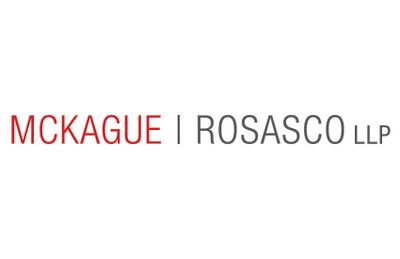When Can Your Paystub Use a Fictitious Business Name?
By: McKague Rosasco LLP
California wage statements must include several key elements. Issuing wage statements missing any required information is a short cut to sizeable penalties or a class-action. Employers are responsible for providing this information even when using third parties to prepare wage statements.
Even a smaller business can end up facing penalties in the six figures for improper wage statements. As the penalties apply to each wage statement issued and each employee, it is well worth your time to get this right. California Labor Code section 226(a) lists the specific information wage statements must include. In particular, wage statements must show “the name and address of the legal entity that is the employer.” Where an employer is a farm labor contractor, wage statements must also include “the name and address of the legal entity that secured the services of the employer.” As the plain language of the statute should make clear, the best practice is to issue wage statements using the employer’s name as registered with the Secretary of State.
Several lawsuits have claimed an employer violated 226(a) by issuing paystubs including slight deviations from the legal entity name registered with the Secretary of State. A relatively recent California Court of Appeal decision clarifies a wage statement listing an employer’s recorded fictitious business name or “dba” does not violate section 226(a). In Savea v. YRC, A152379 (Cal. Ct. App. Apr. 10, 2019) the employer’s name as registered with the Secretary of State was “YRC Inc.” and the wage statements at issue listed the employer as “YRC Freight.” The trial court granted the employer’s motion to dismiss on the grounds the fictitious business name was used to conduct all business in California.
The appellate court agreed with the trial court’s reasoning and relied on several precedents to support its conclusion. The appellate court quoted York v. Starbucks Corp. (C.D.Cal. Dec. 3, 2009, CV 08-07919 GAF (PJWx)) 2009 WL 8617356 for the proposition that “no court or state administrative body has ever held that ‘listing a registered fictitious name on a wage statement on a wage statement is unlawful.’” York found a wage statement listing a company’s fictitious business name rather than its registered corporate name “satisfies section 226(a)(8) as a matter of law.” (Id. at p. 8.) The appellate court’s decision in Savea also relied on Mejia v. Farmland Mutual Insurance Company (E.D.Cal. June 26, 2018, 2:17-cv-00570-TLN-KJN) 2018 WL 3198006 for its conclusion there was nothing to support requiring that an employer name on a wage statement “must be identical to the employer name registered with the Secretary of State.” (Mejia at p. 6.)
The Savea opinion is a good reminder that employers should regularly review their current wage statements for compliance with all elements of 266(a) as well as the latest relevant case law. Contact the experts at McKague Rosasco LLP to have your pay statement reviewed for legal compliance with California labor laws.

